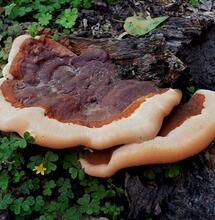How to Deal with Cough from Smoking Weed?

Coughing is an expected bodily reaction when smoking Cannabis for a prolonged period of time or all of the time. Heat from smoke irritates the lungs and bronchia and it may also build phlegm. The cough could be dry, or there could be mucus. Pausing and quitting smoke can help ease or eliminate cough. Also, you can do other simple things to protect lung health and function.
Why Does Weed Smoking Make You Cough?
Cough is quite common among cannabis users who prefer inhalation methods. It's a natural response to inhaling smoke in the air passages and lungs. Coughing can also occur when you're not smoking. But it's more likely to happen if you wake and bake pretty often, like every day.
The throat and lungs are lined with sensory nerves that respond to irritants that enter the air pathways, such as weed or tobacco smoke, chemicals from cleaning products, exhaust fumes, dust particles, pollen, etc. When you inhale an irritant, the nerves react throughout the respiratory tract, producing the cough reflex. The purpose of coughing is to get rid of any irritants to protect the lungs.
How to Prevent Cough?
Several things can be done when you notice that there's an ongoing irritation on your respiratory tract from the continual exposure to smoke. The cough may come and go, but it's better to react sooner rather than later.
- Reduce doses. Smaller "puffs" of cannabis will result in a lower amount of smoke that enters the airways.
- Inhale deeply. The result should be less coughing because the smoke will not get stuck in your throat.
- Keep yourself hydrated. Drinking water before, during, and after a smoking session is good. It will counter the effect of excess heat in your mouth and throat.
- Try other delivery methods. Pause smoking and try weed in other forms, such as cookies, syrups, gummies, oils, and tinctures.
- Drink teas that help ease coughs. Various types of tea can offer relief from cough, including green tea and ginger tea.
- Look up other natural medicines. For example, some traditional Chinese herbal medicines can help with cough as they tonify the lungs and expel heat accumulation in the respiratory tract.
Other Simple Ways to Improve Lung Health
- Breathing exercises. Practice diaphragmatic breathing or "belly breathing," as it's done in yoga. This type of breathing engages and strengthens the diaphragm, which does the pushing and pulling on your lungs to make them work.
- Physical exercise. It improves blood circulation and it also enhances the functioning of the lung. However, avoid excessive exercise when you suffer with an active and productive cough.
- Eat healthily. Foods rich in antioxidants and high in fiber are good for the entire body. So, remember to take your nuts, fruits and vegetables.
- Improve indoor air quality. If you are a grower, you will already know the benefits of good air circulation your plants demand to grow healthy. So, the same goes for you.
Chronic Cough
Sometimes the cough will not go away so simply. In some cases, it may even result in chronic bronchitis. Bronchitis is considered chronic when a person coughs and has mucus for at least three months, two years in a row.
Chronic bronchitis causes persistent coughing even when you are not smoking. The cough may come and go, and it isn't very pleasant as it affects the quality of life. Other accompanying symptoms such as wheezing are also annoying.
If you experience serious bouts of coughing, see your primary care physician and consider quitting smoking in order to decrease symptoms and avoid other lung health complications.










